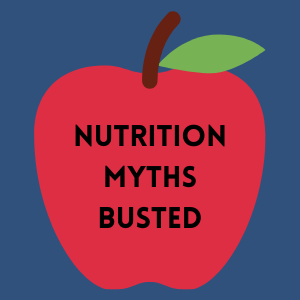
We are told that good health is about eating less and exercising more, but is it that simple? Science shows that we all have different metabolic responses to the same foods, so guidelines are just that and it is not a one size fits all. Many diet recommendations are often based on poor, outdated or biased science.
We are all influenced by deeply ingrained or inherited myths about food (breakfast is the most important meal of the day, fat is bad, fish is good, and so on), and these can be hard to shake. In addition, the global food industry throws billions of dollars every year into manufacturing and marketing processed foods that some believe are designed to leave us wanting more.
There are many reasons for our deep misunderstanding about the science of food, not least that nutrition is an incredibly complex and a relatively new science. It only became a serious area of research in most countries in the 1970s, and it has long been sidelined in medicine.
Until recently nutritional science ignored the important role of the gut biome. Understanding this actually changed our approach and the way we look at food. Along the way, so called expert advice has evolved and we need to differentiate the facts from the myths. Here are the more common ones:
1) Juice is healthy because it comes from fruits and veggies
Sorry, juice fans, but this one is busted. You’re better off eating an actual piece of fruit or serving of vegetables than gulping it down in beverage form.
The main difference here is that with juice, you add a lot of calories all at once because of added sugars. With a piece of fruit or a vegetable, you tend to feel a little fuller because there are
2) You must drink 8 glasses of water a day
This too a myth –popularized by water bottlers. Your water consumption should be based on whether you are thirsty or not. Also it is not just water, you can include tea and coffee or other beverages you may have during the day and the liquid in the soup you had at lunch is also included in your water intake.
3) You need to drink milk to get enough Calcium
Biggest lie of all. This is a branding exercise promoted by the dairy industry. Kale has around 250 milligrams (mg) of calcium per 100g, which is comparatively higher than whole milk’s 110mg per 100g.
4) You won’t get enough iron or protein if you are a vegetarian
Myth again. Plenty of legumes, dark green leafy vegetables, sesame seeds, dates, tofu and beetroot are some rich sources of iron and protein.
5) Coconut oil is a “super” oil
Coconut oil is marketed as a “healthy” oil, but it is 82% unhealthy saturated fat, and in 2017 the American Heart Association said there was no evidence it has any specific health benefits. It might be better than saturated fat from animal sources, but should not be a daily source of your fat. Use it sparingly, if at all.
6) Apple Cider Vinegar is a cure all
Apple cider vinegar has recently gained momentum as a “superfood”. Most of the health claims circulating the internet regarding apple cider vinegar are totally unsubstantiated. However, there is some research suggesting that adding vinegar to a meal can help lower post-prandial blood sugar levels. This could be any type of vinegar, however, as there doesn’t appear to be anything special about apple cider vinegar. So, try to cook with more vinegar, as it may have some health benefits, but it’s not a magic bullet cure-all.
7) Eggs increase cholesterol
You can continue to enjoy an egg or two a day without impacting your cholesterol. It is your dietary fat balance, calorie intake along with individual genetics that will determine if you have high cholesterol.
8) All fat is evil and bad for you
This again is a very misunderstood topic. Fats play a vital role in maintaining healthy skin and hair, insulating body organs against shock, maintaining body temperature, and promoting healthy cell function. Fats are also sources of essential fatty acids, an important dietary requirement. Vitamins A, D, E, and K are fat-soluble, meaning they can only be digested, absorbed, and transported in conjunction with fats.
9) Beans cause flatulence
Get yourself a pressure cooker and pressure cook your beans if you want to avoid flatulence.
Beans and some other legumes, such as peas and lentils, have a reputation for causing gas. Beans contain high amounts of a complex sugar called raffinose, which the body has trouble breaking down. Beans are also rich in fibre, and a high intake of fibre can increase gassiness. Soak beans overnight for a minimum of 12 hours. Discard the soaking liquid and rinse in fresh water a couple of times. Pressure cook your beans until soft.
10) Muesli bars are healthy for you
My philosophy is that if you have to read food labels to decide on your choices, then it can never measure up to whole foods that don’t need labelling, like a carrot or a kiwifruit. When you hear the word muesli, you attribute it to healthy. Hidden in those little bars can be lots of sugar and fat, emulsifiers, preservatives, flavours and colours, so you have to be careful. It is best to make your own home made muesli bars that way you know what’s in them and also less wastage on packaging.
